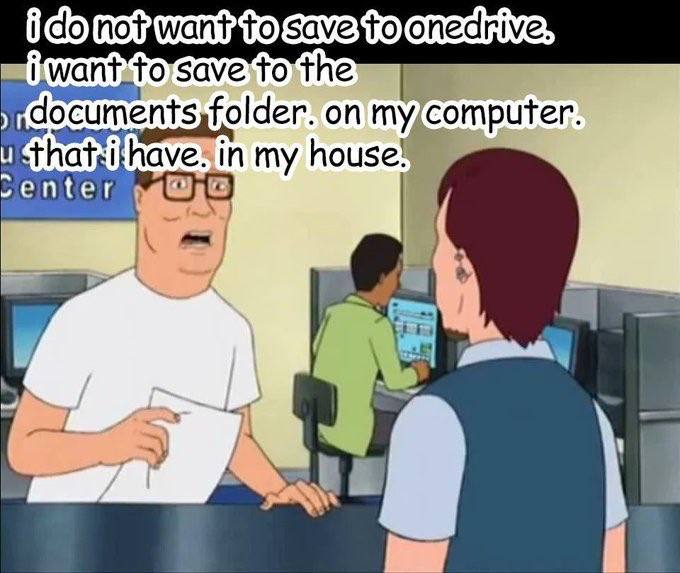this post was submitted on 10 Jul 2024
1767 points (98.8% liked)
Memes
45655 readers
2613 users here now
Rules:
- Be civil and nice.
- Try not to excessively repost, as a rule of thumb, wait at least 2 months to do it if you have to.
founded 5 years ago
MODERATORS
you are viewing a single comment's thread
view the rest of the comments
view the rest of the comments

The moment a lawyer saves their medical records in a way that unintentionally and without their consent uploads them to OneDrive, they have a pretty solid case to charge Microsoft for a HIPAA violation.
HIPAA doesn't even require encryption. It's considered "addressable". They just require access be "closed". You can be HIPAA compliant with just Windows login, event viewer, and notepad.
(Also HIPAA applies to healthcare providers. Adobe doesn't need to follow HIPAA data protection, though they probably do because it's so lax, just because you uploaded a PDF of a medical bill to their cloud.)
HIPAA applies to whichever entity consciously chooses to move/store data.
Generally, after a patient downloads a healthcare-related item, they are that entity - and as the patient, they have full control/decisions about where it goes, so they can't violate their own HIPAA agreement even if they print it and scatter it to the wind.
BUT, if your operating system "decides" to upload that document without the user's involvement, then Microsoft is that entity - and having not received conscious permission from the patient, would be in violation. It's an entirely different circumstance if the user is always going through clear prompts, but their more recent OneDrive Backup goal has been extremely forceful and easy to accidentally turn on - even to the point of being hard to disable. As you said, encryption has nothing to do with it.
LOL. You really think Microsoft doesn't have an army of lawyers ensuring they comply with laws like HIPAA?
When they’re specifically writing business plans designed for hospitals, sure, they can likely account for it. But not when designing end user services that are laissez-faire about user data privacy - on the random things people put in “My Documents”. As with many organizations, it’s very possible the two parts of the corporation don’t talk to each other.
That's not how it works. Microsoft knows Windows will be used in medical settings. They know "but it's a product for home users" won't be an effective defense if they cause a HIPAA violation.
They also should “know” that being forceful about backup prompts, AI features, and major version upgrades will irritate users into switching off their OS, and yet they’re doing it anyway. Logic is not driving their actions; greed for data is.
Microsoft makes is money by selling products and services. Your data is not nearly as valuable as you think it is.